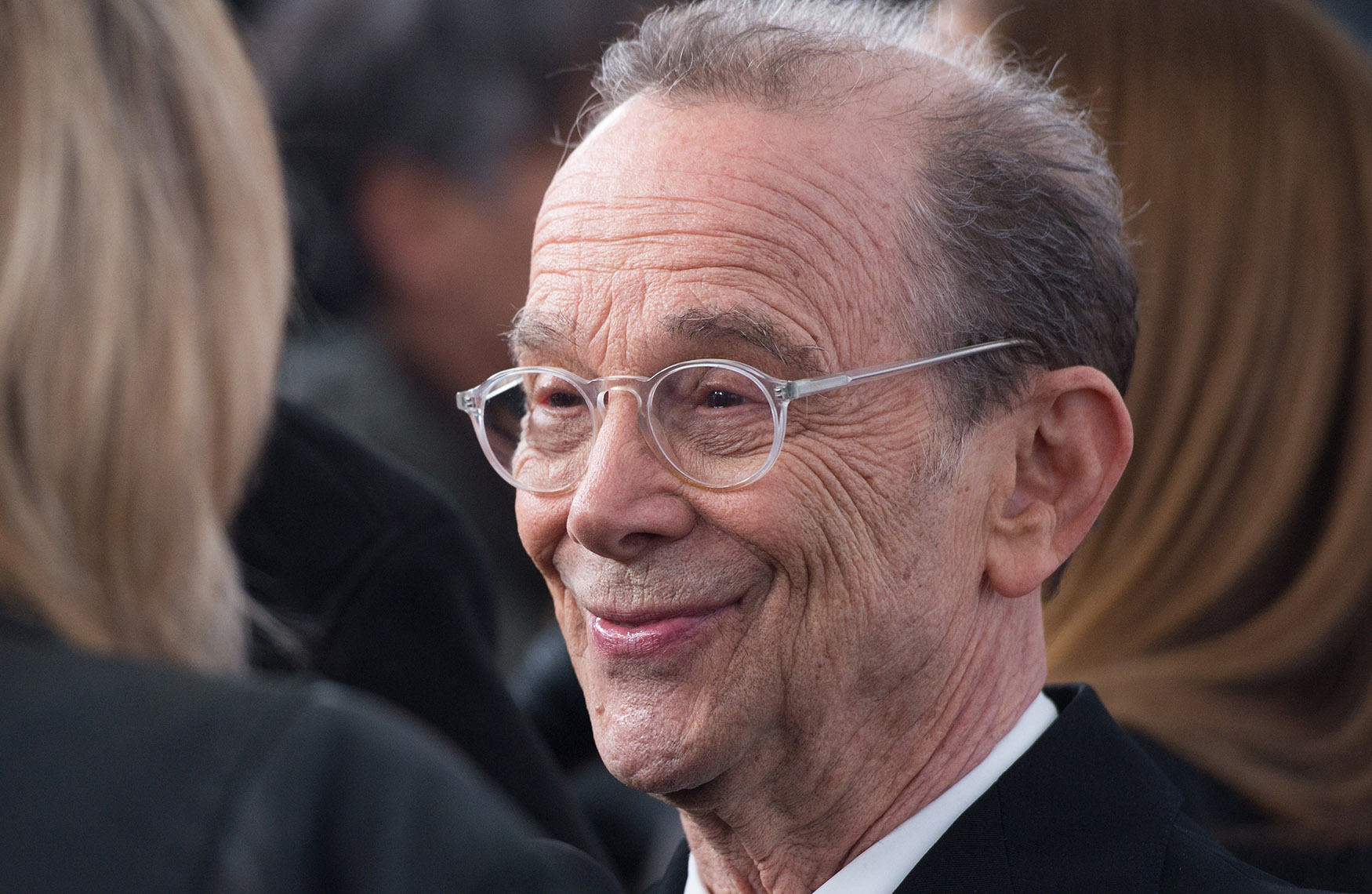Joel Grey draws back curtain on his coming-out story
After the service, everyone would crowd into the community room of the basement for kosher wine, challah, and rugelach. Reciting the blessings over the wine and bread, adoring members gathered around their cantor, who was talk, dark, handsome — and single.” (Joel Grey, from “Master of Ceremonies”)
In his new memoir, the award-winning Broadway and film actor Joel Grey, who recently came out publicly, describes a secret relationship with the male cantor of the synagogue he attended as a teenager with his parents.
It was that relationship that would later contribute to Grey coming out to his parents, he wrote. But he kept his attraction to men under wraps from the public at large for decades, even following his roles in two works — “Cabaret” and “The Normal Heart” — that prominently featured bisexual and gay characters.
Grey did an about-face, coming out in People magazine in late January of last year. His memoir, published in February, describes several experiences with men he had been keeping to himself.
Grey, who has been promoting his memoir nationwide, will take the stage at San Francisco’s Curran Theatre on Tuesday, March 8, discussing his book with Curran editor-at-large Kevin Sessums and performing favorite selections.
Reached by phone late last month, the 83-year-old actor said the change of pace had to do with being “utterly authentic” to himself and others.
“I also thought that I needed to join the throngs, and that I might inspire somebody to feel better about themselves and have more hope for their future,” he said.
Grey is best known as the emcee in “Cabaret,” winning a Tony Award in 1966 for the role he originated on Broadway. In 1972, he reprised the role on the big screen, winning a 1973 Academy Award for best supporting actor.
Revealing his sexual orientation during his 1970s heyday in Hollywood would have been a career-ender, he said. “It’s a very old guard with old ideas. They run the show actually, the alter kockers. Your life is affected by their choices,” Grey said. “I remember when ‘Brokeback Mountain’ came out and the Academy did not embrace it … It just didn’t have a shot.”
In recent years, openly gay professionals in Hollywood have made waves in the Academy. In fact, singer-songwriter Sam Smith just nabbed an Oscar for his original song “Writing’s on the Wall,” in the latest James Bond installment, and screenwriter Dustin Lance Black took one home in 2009 for his work on the biopic “Milk.”
Still, with his recent admission, Grey became one of the few Academy Award-winning actors — including Jodie Foster and Linda Hunt — who have publicly discussed attraction to the same gender.
Although his sexual orientation is one focus of his book, Grey also writes about his childhood in Ohio, his 24-year marriage to actress Jo Wilder, and his career transition from working in local plays to performing in nightclubs, on Broadway and in films.
Grey was born in Cleveland, getting his first acting gigs with the Cleveland Play House in such productions as “Curtain Pullers,” “Grandmother Slyboots” and “Jack of Tarts.” Later, he married Wilder and they had two children, James, who became a chef, and actress Jennifer Grey.
“[The memoir] really starts at birth and goes through to this very day,” Grey said. “It’s about all the complications and challenges of living an examined life.”
The book also discusses his relationship to his parents.
“Don’t ever touch me again … you disgust me,” he quotes his mother as saying after he came out to her.
During the phone interview, Grey described his relationship to his mother as “flawed and difficult.”
“She did give me some great genes in terms of pursuing art as a life’s work, so it wasn’t all bad,” he said.
His father, Mickey Katz, was a jazz musician and comedian known for writing songs that parodied Jewish culture. Grey said he saw his father as a role model and inspiration.
“As I grew older and he grew older, all we did was get closer. I always had so much respect and regard for him,” Grey said. “And he was kind of an inspiring Jew. He would go to a very Orthodox shul by himself and feel very comfortable … I knew how much being a Jew meant to him. It’s not something I could emulate, but I certainly admired it.”
This story originally appeared in Jewish Weekly here.

Leave a Reply